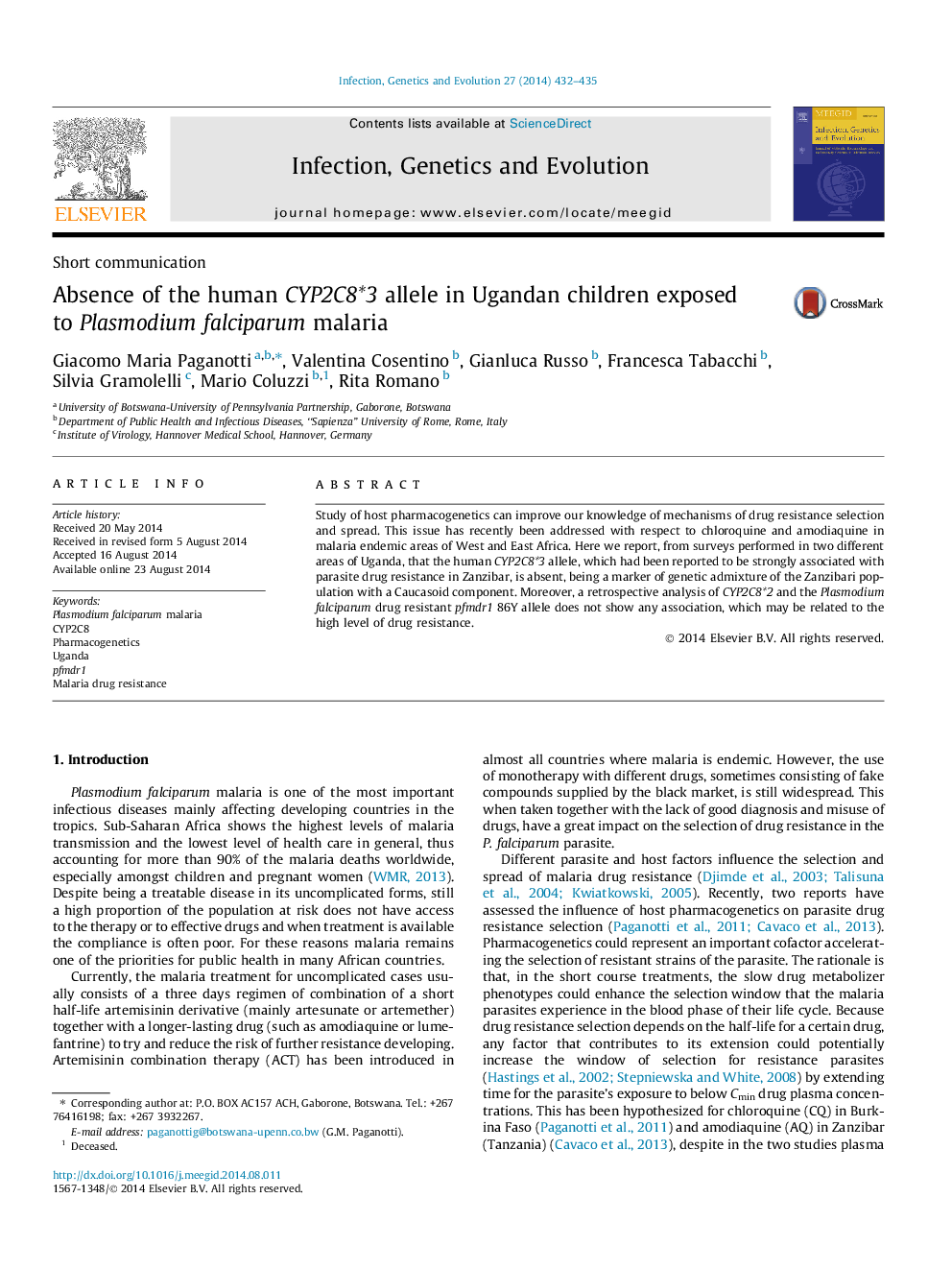| Article ID | Journal | Published Year | Pages | File Type |
|---|---|---|---|---|
| 5909822 | Infection, Genetics and Evolution | 2014 | 4 Pages |
Abstract
Study of host pharmacogenetics can improve our knowledge of mechanisms of drug resistance selection and spread. This issue has recently been addressed with respect to chloroquine and amodiaquine in malaria endemic areas of West and East Africa. Here we report, from surveys performed in two different areas of Uganda, that the human CYP2C8*3 allele, which had been reported to be strongly associated with parasite drug resistance in Zanzibar, is absent, being a marker of genetic admixture of the Zanzibari population with a Caucasoid component. Moreover, a retrospective analysis of CYP2C8*2 and the Plasmodium falciparum drug resistant pfmdr1 86Y allele does not show any association, which may be related to the high level of drug resistance.
Related Topics
Life Sciences
Agricultural and Biological Sciences
Ecology, Evolution, Behavior and Systematics
Authors
Giacomo Maria Paganotti, Valentina Cosentino, Gianluca Russo, Francesca Tabacchi, Silvia Gramolelli, Mario Coluzzi, Rita Romano,
